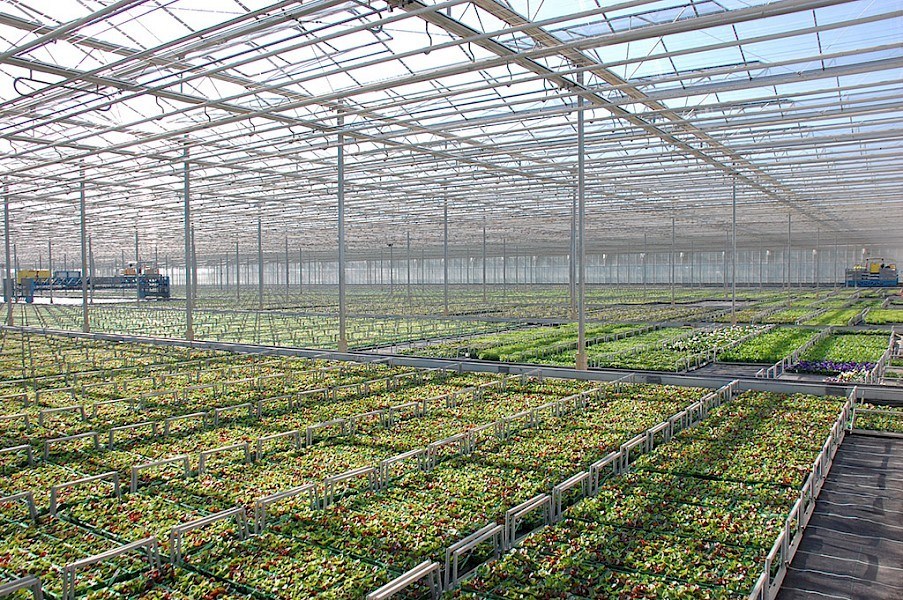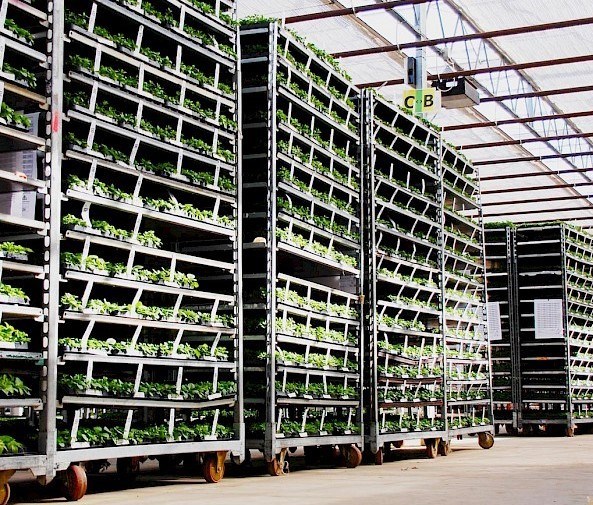The annual costs of plant trading between Europe and the UK as a result of Brexit is costing the sector millions, and small businesses are bearing the brunt of the expenditures, according to the British Horticultural Trades Association (HTA).
The HTA is the UK’s main trade association for garden centres and landscape gardeners, and they estimate the extra costs as a result of Brexit at an annual £25-£30 million, or around €29-34 million.
“We’re an industry that’s used to regulations and we understand biosecurity and the need for it in the UK and the EU,” Sally Cullimore, Policy Manager for HTA, told The Brussels Times.
“But what we are finding is that over the last year the regulatory burden has become incredible for businesses. From the industry point of view, it has completely taken everyone by surprise how underprepared Government was.”
While the HTA’s membership is British, its continental connections with suppliers include countries like Belgium, the Netherlands, Spain and Germany.
They’ve been evaluating the effects of Brexit with everything from spot surveys and anecdotal interviews, to formal data collection, and what they’ve found can be put simply.
“It’s basically a mountain of paperwork just to get a plant across the border,” said Cullimore.
Paperwork, and fees
A recent case study by HTA focused on one of the small businesses it says are disproportionately impacted by the economic fallout of Brexit: Floréac, a Belgian family-owned plant company from Lochristi in East Flanders that buys plants across Europe and ships them worldwide.
“Trade has been much more difficult for us,” said Tim Ravelingien, Project Manager/Business Analyst for Floréac.
“It was very difficult to get all the information, as a lot of it was only available at the last moment and things kept changing.”
One of those changes was the classification of plants under new trade regulations.
Last year, when plants were included in the list of controlled goods by the UK government, they were placed into the same category as weapons of mass destruction, explosives and arms, and torture equipment.
Though the designation was later changed, Floréac and the HTA say that the associated (and disproportionate) requirements for pre-notification and import inspections remain the same.
Floréac had to hire additional staff in order to handle all the extra work that came with post-Brexit trade changes, and those costs came on top of increases in fees and documentation charges that Ravelingien estimates at about 5-10% higher when exporting to the UK.

Photo from HTA
Then there are the shipping delays.
“The customs procedure is more administrative and has caused delays. We have had to plan for one extra day in delivering to clients,” said Ravelingien.
And while shipping delays can cause inconveniences for customers, they do even more harm to the plants themselves.
Delicate plants can die if left too long without water. Just one extra day in the shipping process can mean that fragile flowers like lavender reach their new home wilted, or worse.
For plants that fall under CITES (the Convention on International Trade in Endangered Species of Wild Fauna and Flora treaty) like some popular orchids and snowdrops, expensive licenses are required for each iteration of the plant if they’re to be exported outside the EU, even though nearly all of them are today grown artificially and not taken from the wild.
The UK doesn’t have much of a production sector for houseplants like these, usually purchasing them from Belgium and the Netherlands. But with Brexit, it’s no longer cost effective for many EU suppliers to cater to the British market.
“You’re seeing Dutch and Belgian suppliers just knocking these things off of their offerings and not sending them to the UK,” said HTA’s Cullimore.
“It’s all very business sounding and seems so removed from normal life, but trade is normal life. If you go into a garden centre and purchase a plant, that’s trade. And people don’t understand why a plant they bought today now costs more than it did six months ago, especially when those costs don’t reflect quality changes - they’re purely administrative.”
The changes are coming at a time when gardening has become more popular than ever, thanks in part to coronavirus-related lockdowns that have kept people home.
“There has been unprecedented demand for plants lately,” said Cullimore.
“People are reevaluating their lives. During the first lockdown last year, we gained three million new gardeners in the UK and many of them have made it a long-term interest. We thought that demand might sort of fall off the cliff post-pandemic, but there’s no sign of that demand slowing down.”
But it’s likely that new and veteran gardeners alike will face higher prices in British garden shops, and a more limited selection.
Belgium’s Floréac is one of those suppliers that’s chosen to trim down its UK offerings in an effort to avoid the administrative headache and extra costs, and their experience is said to be mirrored in other small businesses across Europe and in the UK.
VBN, the Association of Dutch Flower Auctions, recently signed on to the HTA’s Let Britain Grow campaign, which aims to negotiate an agreement between the UK and the EU to help remove some of the regulations Brexit imposed upon the horticultural trade sector.
The VBN has about 4,000 members and 2,500 customers (including trading companies), and 85% of their trade is export.
After Germany, the UK is their second largest export market, but the VBN says many of their Dutch members are now thinking twice about doing business with Britain.
“Since January 2021, trade to the UK has changed considerably with the new UK regulations adding in requirements for extra paperwork and physical inspections of all plants alongside time-consuming pre-notification and pre-export processes,” said Eveline Herben of VBN.
“This also leads to considerable extra costs. For some products, although artificially propagated and therefore previously exempt from extra requirements, you must also acquire an import permit - another lengthy process which adds up to exporters choosing not to export these products (like Cacti) to the UK anymore.”
The UK imports about £400 million (around €465 million) in plants and plant material each year, and exports around £80 million (about €93 million).
Why such a greater share of imports?
“We in the UK tend to throw it all in the mix, but EU suppliers are often experts in particular plants,” explained Cullimore.
EU countries are the UK’s single biggest trading partners in a horticultural industry worth over £24 billion in Britain’s GDP.
Brexit has thrown that industry into disarray.
“This is the biggest single non-tariff barrier to trade in the history of our industry,” said James Barnes, Chairman of the HTA.
“We all support having a robust biosecurity regime, but the UK Government needs to get a better balance on the regulations and restrictions, which are limiting responsible trade. The spiralling staff hours to administer the paper mountain, inspection fees, phytosanitary certificates and cost increases amounts to £25-£30 million.”
The HTA estimates that commercial growers in the British association are facing an extra yearly cost of £3,500 (around €4,000) on average - just in inspection fees and additional working hours.
And they don’t think the extra costs are really making a difference when it comes to biosecurity.
“We feel that the model the UK and the EU have taken, without negotiating, actually results in less biosecurity because people consolidate loads [instead of using direct supply chains],” said Cullimore.
This means that instead of shipping directly to a British customer, they ship to a single location and from there it’s consolidated into a larger shipment of other plants bound for the UK, while the suppliers attempt to share the shipping cost burden.
“It’s actually counterproductive, and costing EU businesses a lot of money,” Cullimore said.
The HTA says that a relaxation of the new Brexit-related regulations would not only help ease the financial and administrative burdens of trading with continental Europe, but also help when it comes to trade between Northern Ireland and Great Britain, which under the current arrangement has resulted in a 50% shortfall in trees traded since the start of the year.
But Barnes says the UK government isn’t reacting to mounting complaints.
“We need to trade more freely if we are to open up our industry to the economic powerhouse it can be and work on a plant health agreement that instils recognition and trust, and remove the green tape,” Barnes said.

